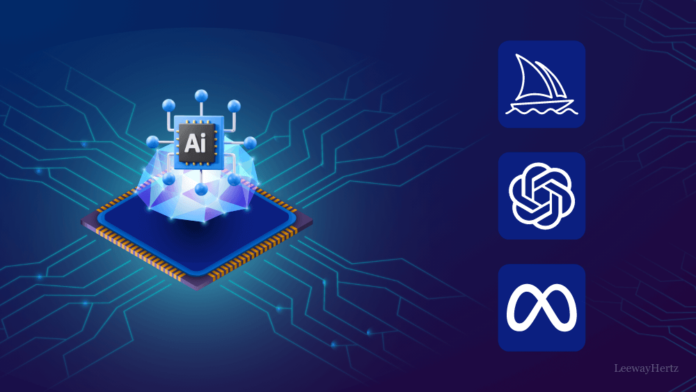Artificial intelligence technologies have seen tremendous advancements in recent years. As 2025 approaches, innovative developments are expected to reshape the global tech and economic landscape. In this article, we explore the most anticipated advancements in AI and their impact on various industries.
1. Proliferation of Intelligent Agents (AI Agents)
AI agents are autonomous programs capable of performing tasks without human intervention. By 2025, these agents will become an integral part of daily life and business operations.
Expected Uses:
- Streamlining workflows in organizations.
- Providing high-quality customer support across multiple platforms.
- Enhancing productivity in fields like e-commerce and logistics.
- Revolutionizing personal assistants with context-aware functionalities.
These agents are also expected to evolve with enhanced decision-making capabilities, allowing them to manage complex projects and act as strategic advisors in business settings.
2. Integration of Multimodal AI
Multimodal AI enables systems to process and understand multiple types of data such as text, images, and videos.
Key Benefits:
- Improving output accuracy.
- Facilitating natural user interaction.
- Broad applications in manufacturing to analyze sensor data and improve maintenance.
For instance, customer service bots powered by multimodal AI could analyze a customer’s tone and expressions during a video call to provide a more empathetic response.
3. AI-Native Applications
AI-native applications are software solutions designed from the ground up with advanced AI capabilities.
Impacts:
- Reducing costs and improving time-to-market.
- Significant use in healthcare, finance, and retail sectors.
- Enabling seamless integrations with IoT devices and edge computing for real-time insights.
These applications will likely redefine industries by fostering smarter and more adaptive solutions tailored to user needs.
4. Advancements in Generative AI
Generative AI is expected to make significant strides in 2025, enabling the creation of new content such as texts, images, and music.
Applications:
- Supporting design and production processes.
- Customizing creative content for consumers.
- Assisting in education by creating tailored learning materials.
Generative AI tools are also anticipated to contribute to scientific research by generating hypotheses or simulating experiments.
5. AI in Product Development
AI will help accelerate product development processes, particularly in complex industries like automotive and aerospace.
Benefits:
- Shortening product development cycles.
- Enhancing technological innovation.
- Reducing waste through predictive prototyping.
By leveraging AI-driven simulations, companies can test thousands of design variations in virtual environments before physical production.
6. Surge in AI-Generated Content
By 2025, the volume of AI-generated content will increase significantly, with a particular focus on videos.
Uses:
- Digital marketing.
- Education and entertainment.
- Personalized storytelling in gaming and media.
With AI tools creating high-quality videos at scale, small businesses and creators will gain access to professional-grade content production capabilities.
7. AI in Cybersecurity
As AI becomes more integrated into various systems, security solutions will evolve to address growing cyber threats.
Advantages:
- Faster threat detection.
- Automating responses to attacks.
- Enhancing data protection.
- Predicting potential vulnerabilities before exploitation.
AI-driven cybersecurity tools are expected to monitor networks in real-time, providing proactive defense mechanisms against evolving threats.
8. Ethical and Regulatory Considerations
With the expansion of AI use, the need for regulatory frameworks will grow to ensure ethical and safe deployment.
Focus Areas:
- Privacy and data protection.
- Addressing algorithmic biases.
- Establishing transparency in AI decision-making.
Governments and organizations are likely to collaborate on global AI standards, ensuring responsible and inclusive development.
9. AI in Healthcare
The healthcare sector will witness expanded AI applications in diagnosis and treatment.
Examples:
- Analyzing medical images.
- Developing personalized treatment plans.
- Improving remote care services.
- Enhancing drug discovery through advanced data analysis.
AI-powered wearable devices are also expected to provide real-time health monitoring, offering preventative care and early diagnosis for chronic conditions.
10. AI’s Impact on the Workforce
Automation will change the nature of work, emphasizing the need for new skills.
Expected Transformations:
- Replacing routine tasks with technology.
- Creating jobs requiring advanced technical and analytical skills.
- Promoting hybrid work environments optimized by AI tools.
Reskilling initiatives will become essential as businesses aim to bridge the gap between AI capabilities and workforce expertise.
11. AI and Sustainability
AI will play a critical role in addressing global environmental challenges.
Key Contributions:
- Optimizing energy usage in smart cities.
- Advancing precision agriculture to reduce resource wastage.
- Monitoring and predicting climate patterns for better disaster preparedness.
AI-driven solutions will empower industries to adopt eco-friendly practices while driving economic growth.
Conclusion
The AI advancements expected in 2025 will revolutionize various sectors, opening new horizons for innovation and development. However, these changes bring challenges that require careful preparation from businesses and individuals alike. Staying informed about these developments will be key to thriving in the upcoming digital future. Additionally, fostering collaboration between stakeholders can ensure AI technology evolves responsibly and inclusively.



